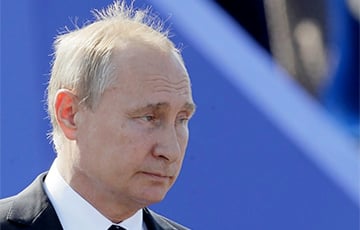Russia's Prosecutor General Humbly Asks Algeria Not To Arrest Putin
6- 29.11.2023, 8:08
- 13,476

According to a warrant from The Hague.
Russian Prosecutor General Igor Krasnov has proposed to Algerian Justice Minister Abderrachid Thabi to conclude an agreement on the non-extradition of citizens at the request of the International Criminal Court (ICC). Before signing the document, the countries could consider providing appropriate mutual guarantees, he added.
Krasnov explained his initiative by saying that the ICC is allegedly no longer an independent instance. "Today, this organisation is being used by the efforts of certain groups to serve personal interests and in violation of universally recognised norms of international law," he explained.
According to Krasnov, if Algeria agrees to such an arrangement, it will strengthen partnership relations between the countries and "will contribute to their further all-round development." As a first step, the parties signed a protocol on co-operation, under which Algerian Ministry of Justice employees were allowed to attend free training events at the University of the Russian Prosecutor's Office.
On March 17, the ICC issued an arrest warrant for Russian President Vladimir Putin and Children's Rights Commissioner Maria Lvova-Belova. They are suspected of illegally deporting Ukrainian children, which qualifies as a war crime. The warrant is issued for life and can be revoked only if the Russian president is put on trial.
The main document under which the International Criminal Court operates is the Rome Statute. It has been ratified by 124 states so far. All of them are obliged to detain people who are subject to arrest under an ICC warrant and send them to The Hague. The latest country to ratify the statute was Armenia.
The arrest warrant prevented Putin from travelling to the BRICS summit in South Africa in August. The trip was supposed to be his first major foreign visit since the start of the war in Ukraine, but he decided not to risk it and sent Foreign Minister Sergei Lavrov.
Putin then refrained from travelling to the G20 summit in India, even though it had not ratified the Rome Statute, and then refused to visit Turkey for talks with President Recep Tayyip Erdogan, forcing the latter to fly to Sochi himself in early September.










